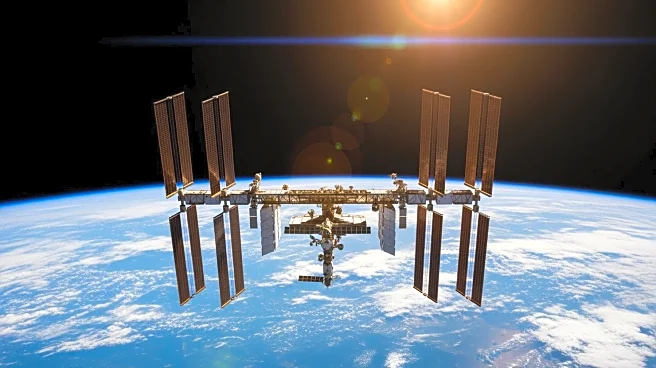What's Happening?
NASA and its international partners are celebrating 25 years of continuous human presence aboard the International Space Station (ISS). Since November 2, 2000, over 290 people from 26 countries have lived and worked on the ISS, conducting thousands of experiments
that have advanced science and technology on Earth. The station has served as a platform for scientific research and a bridge connecting cultures, sparking creativity, and inspiring generations. Key achievements include advancements in life support systems, microgravity research, and the Spacesuit Art Project, which connects science, art, and hope.
Why It's Important?
The 25-year milestone of the ISS underscores its role in fostering international collaboration and scientific innovation. The research conducted aboard the station has contributed to advancements in various fields, including life sciences, materials science, and environmental monitoring. The ISS serves as a critical stepping stone for future space exploration missions, such as NASA's Artemis program aimed at returning humans to the Moon and eventually reaching Mars. The station's legacy of ingenuity and community highlights the potential for continued collaboration in addressing global challenges.
What's Next?
The ISS will continue to play a vital role in space exploration, with ongoing research and international cooperation paving the way for future missions. NASA's Artemis program will build on the lessons learned from the ISS, aiming to establish a sustainable human presence on the Moon and prepare for Mars exploration. The station's contributions to science and technology will guide future endeavors, ensuring that the next 25 years are marked by innovation and resilience.















